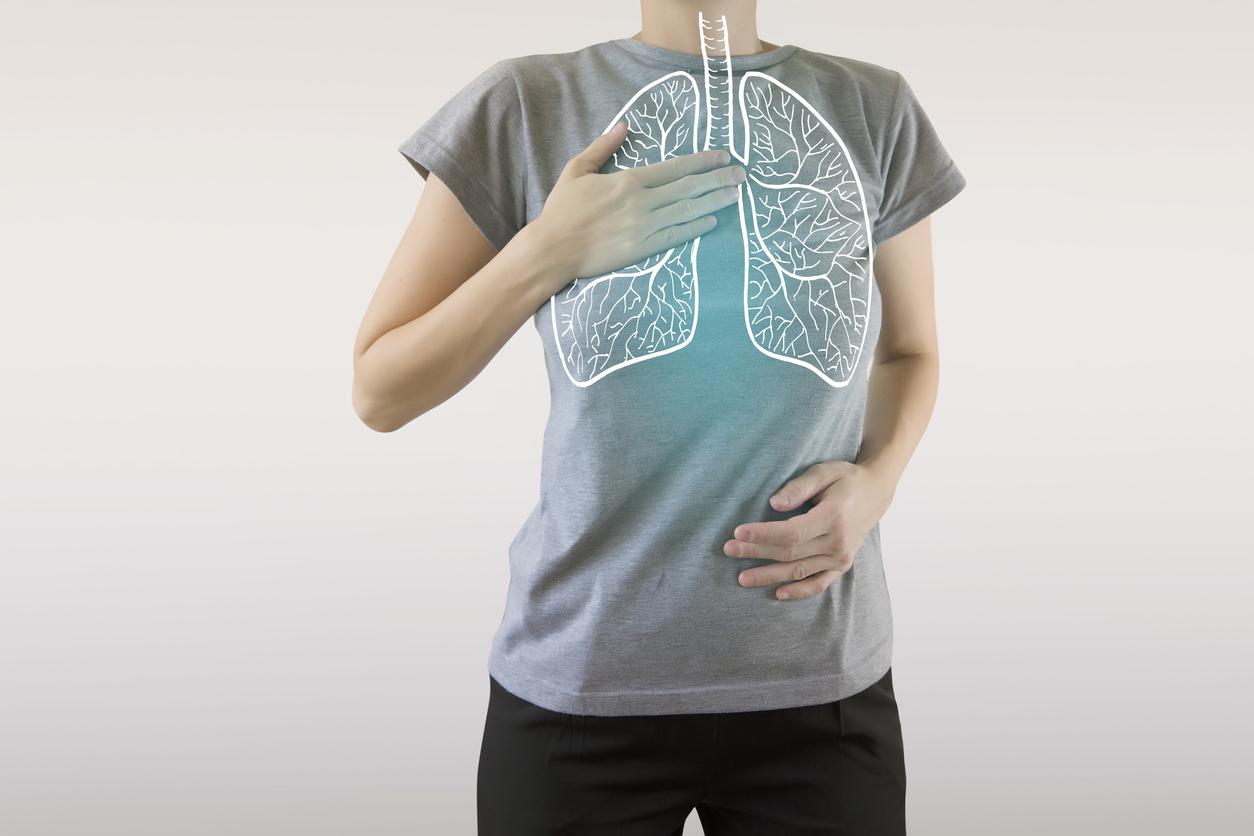According to research, when the lung cancer is present, even at an undetectable level when it is not clinically obvious, the body produces autoantibodies to defend itself. These deniers are a response to proteins on cancer cells. “By measuring in scans whether a person has these autoantibodies in their blood, we can determine whether they could benefit from a CT scan,” said Dr Stuart Schembri, lecturer at the University of Dundee and co-investigator in leader of a study conducted across Scotland.
This work studied 12,000 adults aged 50 to 75, at high risk of lung cancer due to a heavy smoking for 20 years or more, or a family history of this cancer. Among them, 6,000 spent a blood test to detect autoantibodies, and 6,000 received regular diagnosis and care.
A test to detect lung cancer at an early stage
Preliminary results, presented Dec. 9 at the British Thoracic Society (BTS) winter meeting, show that nearly 1 in 10 people who received the blood test had results indicating the presence of self- antibody. These individuals then underwent chest X-rays and CT scans to look for signs of lung cancer. To date, 16 cases of lung cancer have been diagnosed. Three quarters of them were at an early stage. “We believe this test can help us detect lung cancer in its early stages, when we have a better chance of successful treatment,” the research author said.
Although these results are encouraging, it is too early to tell if the study will change clinical practice since the final results will not be available immediately. The study is now following volunteers over a 2-year period to determine if this test can reduce the incidence of patients with advanced lung cancer (stage III or IV) compared to routine care.
Treat lung cancer as soon as possible
“Lung cancer is a serious and deadly disease and our best hope for successful treatment is to catch it as soon as possible, said Dr Stuart Schembri. Heavy smokers are particularly at risk, but it’s just not possible to scan all persons considered to be at high risk.
And in those who are scanned, a CT scan alone can falsely suggest lung cancer, causing unnecessary worry and expense. So we need to find a way to identify high-risk people who need a CT scan and a way to detect lung cancer before they show symptoms.”
Increase in surgeries to treat lung cancer
The latest results from the National Lung Cancer Audit on thesurgical activity also show encouraging results. Capturing data from 4,892 cases who underwent surgery in 2013, they show both an increase in the number of surgical procedures to treat lung cancer and in the survival rate. “This check reveals that the early survival rate is very high, with 96% of patients living beyond 90 days, according to Dr Paul Beckett, Consultant Lung Specialist at Derby Teaching Hospitals NHS Trust and Fellow of the British Thoracic Society This is very encouraging for patients and healthcare professionals alike We need to spread this message widely, across the NHS and across society, so that more people with lung cancer can have access surgery and have the chance to live longer with a better quality of life,” said Dr. Beckett.
In France, nearly 37,000 new cases of lung cancer are diagnosed each year (27,000 men and 10,000 women). Lung cancer ranks fourth among the most common cancers behind those of the prostate, breast and colon. It is the leading cancer in terms of mortality.
Read also :
Lung cancer: it can lie dormant for 20 years


















